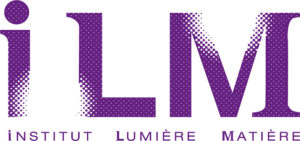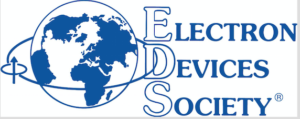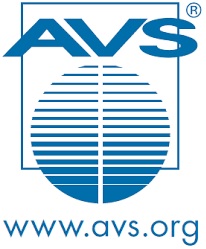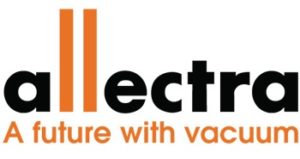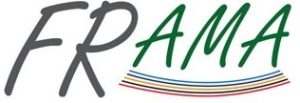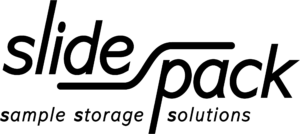IVNC Lyon : Virtual format for July 6-8, 2020 with regular version postponed to 2021
First Information. 33rd IVNC 2020 – virtual format. July 6-8th, 2020.
Dear Colleagues
As promised the 2020 organizing committee has been busy discussing and setting up a virtual version of the 33rd IVNC to be hosted by the original Chairmen Steve Purcell and Jean-Paul Mazelier this July, 6-8th. Now that we have reviewed the abstracts, we have a clearer vision of how to run the virtual event.
Abstracts received: Despite the crisis, the 2020 IVNC Conference received a good number of abstracts for both oral and poster presentations. All those that have submitted have been notified of the results and what further actions to follow.
It will be a real conference, with a scientific committee, chairs, a program, a booklet of abstracts, and certificates of attendance for those who request them.
However please remember that the planning is still tentative as the submissions were made for the full conference and many may change their minds for the virtual conference.
This conference will be officially the 33rd version of the IVNC series and the 34th will be in Lyon July 5-9, 2021 as discussed in the earlier newsletter.
The 2020 IVNC will consist of defined sessions that group 10 minute pre-recorded talks, all drawn from the submitted abstracts, followed each by 5 minute live question periods. As well, two poster sessions and accompanying two min flash presentations are planned. The posters, and the video presentations, are to be consultable at least during the conference days and the attendees will be encouraged to ask questions in a public forum and in private.
Those who submit work realize that we cannot control downloading of their material and thus they are responsible for what they put on-line.
The platform to be used is still under debate but it will likely be Webex.
Thus, for those of you who wish to participate:
Oral presenters will be asked to submit a 10 min video presentation, an extended abstract and be available for the question period.
Poster presenters will submit a poster in pdf, a 2 min flash video, an extended abstract and be reactive to questions which may be posed over a longer time period.
Extended abstracts are to be published on IEEE Xplore and in a Proceedings (abstract booklet) to be made available to conference attendees.
The conference will tentatively be held over a three day period. A precise planning for the conference can only be made closer to the event itself when we have a return from our invitations.
The accepted orals have been classed under five categories:
- Applications (Xrays and other), (5).
- Emitters (nano and novel), (5).
- Fundamentals (photon electron interactions, beam physics, spectroscopies, microscopies), (5).
- FE Theory (classic tunneling, ab initio, modeling), (6).
- Vacuum micro/nano devices, (6).
Registration is to be free of charge but the organizing committee reserves the right to accept or refuse inscriptions. Registration will give access to a password.
Deadlines: June 5th for Extended Abstracts, 10 min videos and 2 min flash. We have not yet set up the transfer of large data files. Coming soon.
We are not asking the Plenary, Invited and Tutorial speakers to give presentations this year as we have already extended our invitations to them for next year.
Conference hours: This of course cannot be satisfactory for many of you because of the different time zones. Taking into account that the longest time gap is over the pacific ocean we have chosen each day to start at 15:00 hrs Lyon time.
This means: 15:00 Germany, Switzerland, 9:00 New York (-6 hrs), 6:00 California, Vancouver (-9), 22:00 Tokyo (-17, +7), 21:00 Beijing (-18, +6), 13:00 Moscow (-22,+2).
This is most difficult for the North American west coast and Tokyo and we sympathize with our colleagues from these two regions which as well are important contingents for the conference. We note that the conference will be consultable at all times during the three days at least.
The first planning looks like this:
|
Lyon Time |
Monday July 6 |
Tuesday July 7 |
Wednesday July 8 |
|
14:40 |
Opening Remarks |
|
|
|
15:00 |
Theory (6) |
Fundamentals (5) |
Emitters (5) |
|
16:30 |
Pause |
Pause |
Closing Comments |
|
16:45 |
Applications (5) |
Vacuum Micro-Nano Devices (6) |
|
|
18:00 |
Pause |
Pause |
|
|
18:15 |
Flash (19) |
Flash (18) |
|
|
19:00-21:00 |
Posters |
Posters |
|
Sessions are typically 1.5 hours (6 talks).
Stay tuned for later developments and stay healthy.
Stephen Purcell, Jean Paul Mazellier
on behalf of the IVNC Lyon organization committee
and the IVNC International Steering Committee
April 30, 2020.
Scope
The International Vacuum Nanoelectronics Conference (IVNC) series is devoted to the nanoscience and technology of vacuum electron sources and applications. The first IVNC was held in Williamsburg, VA in 1988 and chaired by C. A. Spindt (SRI) and H. F. Gray (NRL). It rotates between Asia, Europe and North America and has close to equal participations from these continents. Initially focused on field emission, displays and power tubes, it has since expanded to encompass the understanding of the physics, chemistry, electron emission and beam properties of novel nano-emitters based on various electron emission mechanisms, as well as the materials, growth, and fabrication technologies of sources and vacuum electronic devices. It meets every year and can be considered as the pre-eminent conference in the world on electron sources and their applications,
The electron source subject touches a vast range of dependent domains of both fundamental and applied nature and includes questions on quantum physics, ultrafast laser excitation of nanomaterials, electron lithography for advanced semiconductor fabrication, ultimate electron microscopy and holography, new generation portable xray imaging, accelerator beam physics, etc. This conference is an excellent meeting opportunity for building cross-domain contacts.
The conference attracts high level international scholars as plenary speakers, usually 3 or 4 by conference, and invited speakers.
Keywords : Field Emission, Vacuum nano-electronics, Quantum physics, Nanoscience, Carbon nano-structures
We hope to see you all in Lyon, 5-9 July 2021.

